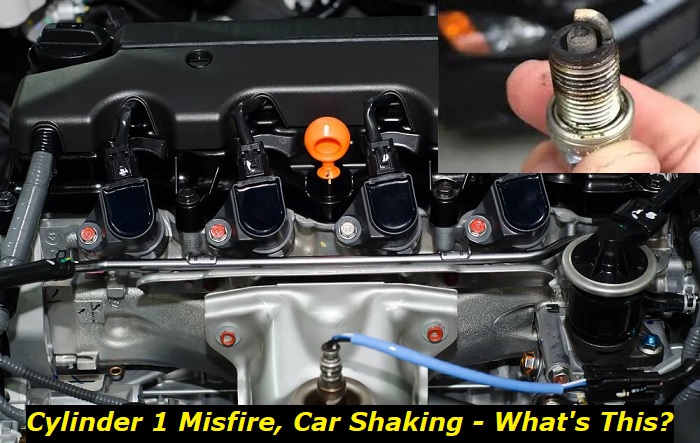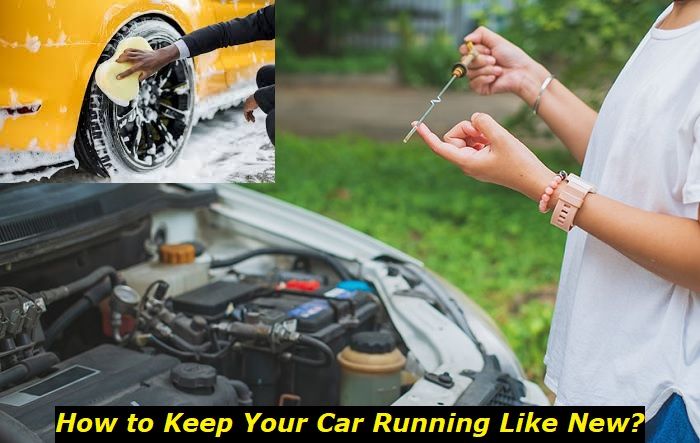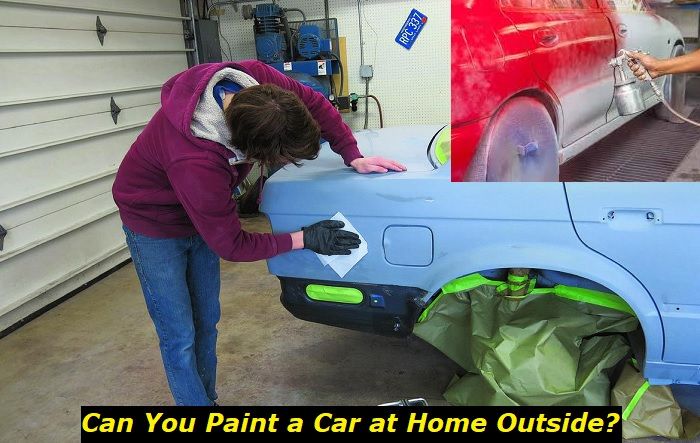Your car may be shaking exactly because of the misfiring cylinder, and the cylinder misfire is usually caused by issues with the ignition or fuel supply. In some cases, the issue is caused by both systems and needs careful diagnosis and repair.
Ignition problems highlights
- DIY repairs:possible
- Tools needed:basiccar repair tools
- Commonreasons:ignition coils, spark plugs, wiring, power supply
- Time to repair:1 - 3 hours
- Price for parts:$50 - $250
- Can you drive?Yes
- Alternative solutions:limping, swapping spark plugs, swapping ignition coils

Why is my car shaking when one of the cylinders misfires?
So, you've noticed that your car is shaking. That's too bad and it doesn't add any comfort to your driving. You are most likely to notice this when the car is idling. It seems that the engine will stall now but suddenly it comes back to life. If you open the hood and look at the engine, it will be shaking like crazy.
The most common reason for a shaking engine is a cylinder misfire. Also, this problem may occur when one of the engine mounts is faulty or there is another problem with the engine, like uneven compression in cylinders, for example. But misfire is still one of the most common things to blame, in this case.
Here's how it works:
- one of the cylinders misses one or several cycles because of poor injection or ignition;
- the engine keeps working on the remaining cylinders;
- but the engine is balanced to work smoothly with all its cylinders, so it starts shaking;
- also, the power output of the engine is changed sharply and the ECU tries to compensate for it by quickly growing RPM;
- then the cylinder suddenly kicks in again and the engine shakes and trembles again because of these changes.
Misfiring cylinder may lead to other issues and you shouldn't ignore it. So, the best idea is to plug a good OBD2 scanner into the port in your car and read the codes. In most cases, you will see the P0301 code telling you that cylinder number 1 has problems with firing each time it needs.
The codes may vary according to the brand and year of your car. Also, not only the first cylinder may misfire - so, this may change the code and change the effects. But anyway, you will have to deal with the problem immediately.
Why may a certain cylinder in your engine misfire?
Misfiring occurs when the engine doesn't get the needed quality of fuel supply or there is a problem with the spark. Also, in older engines with high mileage, you can find problems with compression in a certain cylinder. Locating the issue is not hard when it comes to spark problems. But other issues will require professional diagnosis.
Here are the actual problems that can cause your cylinder 1 to misfire:
- Bad spark plug. Quite often, you will find out that the bad spark plug is the issue. It won't create a spark when needed, so the injected fuel will not burn.
- Poor ignition coil. Another issue that doesn't allow to create the needed spark is the faulty ignition coil. It may kill the plug or just malfunction and cause misfires.
- Bad fuel injector. It may be clogged or broken, or it may not get the needed signals or power. If the injector doesn't supply the combustion chamber in cylinder 1 with fuel, there is just nothing to burn.
- Compression problems. This is a very complex issue that can have many reasons and different consequences. Low compression is hard to investigate and even harder to repair, in most cases.
When it comes to spark issues and fuel supply, the repair may be costly but it's quite fast. But when the problem comes from compression issues, even locating the reason will be quite hard. This may be a cracked head or cylinder, bad piston ring, bad closing of the valve, some buildups and contaminations, a worn-out engine, etc.
To measure compression in cylinder one, you will need special equipment, so this is a task for professionals. In the article, we will concentrate on some DIY methods to check and repair the problem.
Checking the bad spark reasons
Actually, bad ignition is the easiest thing you can check by yourself. For this, you will need to do a two-step inspection.
Step 1. Take off the ignition coil in cylinder one and replace it with any other cylinder that works properly. Then start the engine and use your OBD2 scanner to see if the code changed. For example, the P0303 code will mean that the problem moved to the third cylinder. If the issue is still with the first cylinder, then the ignition coils are working properly and shouldn't be changed.
Step 2. Take off the spark plug from the first cylinder and replace it with a spark plug from any other cylinder. Then turn on the engine and see if the code changes. If it shows P0303 or P0302 now, the problem was with the spark plug. If it's still P0301 (Cylinder 1 Misfire), the problem is with some other part.
You may wonder how to locate the first cylinder. It's easy. On an inline engine, this is the cylinder that is the closest one to the timing system. In most cars, it's the first cylinder on the passenger side of the car.
In a V-shaped engine, the first cylinder is the one that is closest to you when you are standing in front of your vehicle. In all V-shaped engines, one head is slightly closer to you than the other, so locating the first cylinder won't be a problem.
Checking for bad fuel injection
If the problem is not with the ignition, chances are that your injector is faulty. In the majority of vehicles, you won't be able to swap the injectors as easily as spark plugs. If you can't do this, you may need professional help with checking the injectors.
In most cases, your injectors are faulty because of carbon buildup in direct-injection systems, clogging because of bad maintenance and old contaminated filters, or just because of their age. Also, you may want to check if the injector wiring is OK and if nothing is lost among connections and wires.
Can you drive the car with a cylinder 1 misfire problem?
You can still drive when you find your vehicle shaking because of the cylinder misfire issue. But I recommend you drive directly to the repair shop or dealership. Your car will most likely lose power, may stall at every intersection, and will use a lot of fuel.
Also, the following problems may join your ride:
- the unburnt fuel will be sent to the catalytic converter and explode there ruining this expensive part;
- the car may backfire causing a lot of attention on the road;
- the fuel may also go down to the oil pan and dilute oil causing even more long-run problems;
- the misfire can go worse and the first cylinder may just stop working at all;
- the engine may die if you keep driving like that for a long time.
So, the best idea is to go to the repair shop immediately or at least within a couple of days. Driving your car for a long time with one cylinder dead or firing spontaneously is a bad idea that can eventually cause a lot of problems with the engine.
Can you prevent problems with the misfiring engine?
Well, yes, you can prevent this by paying attention to regular maintenance. Your engine needs a lot of TLC to live a long and happy life. In most cases, your engine may start misfiring spontaneously but sometimes it may show a lot of symptoms before the cylinder fails.
Proper maintenance may save you from some issues, but you may also need to know the average lifespan of spark plugs and coils in your engine. You may even want to replace the plugs before they start making problems for you.
Change fuel filters and have the injectors inspected regularly. Also, order the overall engine inspection at least once every two years. You will be able to spot early signs of problems that may cause misfiring after a month or two and solve these issues before they show up.
Final thoughts
I'm pretty sure that you may encounter these problems many times in your life and it will be much better if you know what to do. A misfiring engine is not usually a fatal problem unless it's all about a cracked head or cylinder block. You may still drive the car even though the power of the engine will be much worse and you will not get any pleasure of such driving.
You may use some DIY methods of locating and solving the problems that I've presented above. Or just let professionals find and solve the issue with your vehicle.
About the authors
The CarAraC research team is composed of seasoned auto mechanics and automotive industry professionals, including individuals with advanced degrees and certifications in their field. Our team members boast prestigious credentials, reflecting their extensive knowledge and skills. These qualifications include: IMI: Institute of the Motor Industry, ASE-Certified Master Automobile Technicians; Coventry University, Graduate of MA in Automotive Journalism; Politecnico di Torino, Italy, MS Automotive Engineering; Ss. Cyril and Methodius University in Skopje, Mechanical University in Skopje; TOC Automotive College; DHA Suffa University, Department of Mechanical Engineering






Add comment